We’re doing funding applications again, and funders like numbers, so I’ve been going back through the archives and doing some counting. This exercise has made me realise that over the years we’ve reached an incredible number of people – probably in excess of 10,000 have directly experienced UpStage in some way – either as an artist, in the audience at a performance or presentation, workshop participant, or researcher. There’s also the indirect reach, for example through blog posts, journal articles, book chapters and those who have visited the website and viewed documentation of performances. It’s pretty difficult to make an accurate count! I’ve decided to gather the information here in a blog post, partly so that we can easily find it again in future, but also so that we can share it with you and celebrate what we’ve achieved.
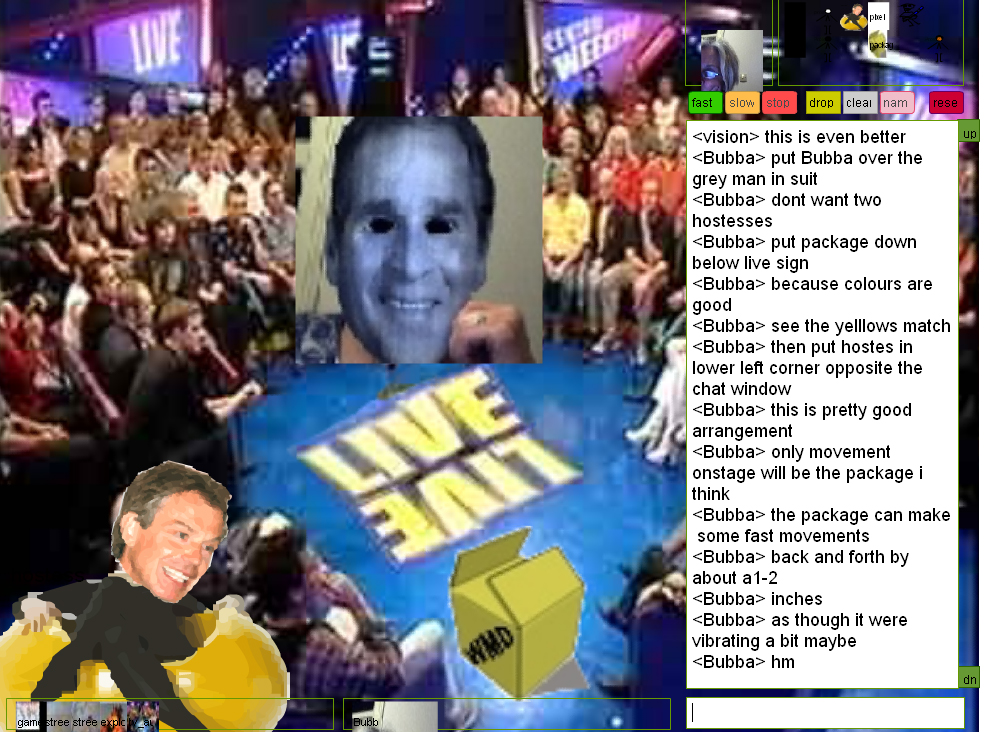
Many people assume that, because we’re doing something on the internet and it’s possible to access it from anywhere in the world, there will be hundreds of people in the audience of any performance. But that’s not the case at all – and in fact, we don’t want huge numbers! UpStage performances are truly interactive events – real-time conversations between diverse people around the world. It’s not possible to have a conversation if hundreds of people are present – the chat starts to feel “crowded” when there are only about 20 people actively participating. We’re interested in the quality of the conversation and interaction, and the impact this has on individuals, rather than having a huge crowd who don’t necessarily take much away from the experience.
Nevertheless, over all of the activity of the last 16 years, we estimate that over 10,000 people have had a direct experience of UpStage, through participating in performances and events, attending presentations or workshops or accessing documentation and publications. Compiling these numbers is a valuable exercise for us as well as for the funding applications.
Early Days – 2004-2006
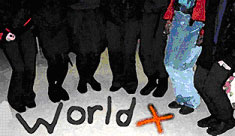
Over 2000 people had direct experience with UpStage during the first three years of the project. As soon as UpStage was launched in January 2004, a schools project called WorldX began, connecting classrooms in New Zealand and London; and Avatar Body Collision set about creating DTN2, which was presented in May 2004 to audiences online and gathered at the Machinista Offline Festival in Glasgow. We continued with this pace of activity, holding workshops (online and at physical venues) and giving presentations as well as performances.
- 3 performances: WorldX (audiences online and at schools); DTN2 (audiences online and at Machinista); The Rabbits (audiences online and at the Reconceptualising Early Childhood Education, Rotorua);
- 21 presentations: MediaLab South Pacific, Wellington; Goldsmiths University, London; Faki Festival, Zagreb; Albany Theatre, London; TUANZ Education Conference, Greymouth; Smash Palace Forum, Wellington; ICTPD Network Conference, Rotorua; NZ Music Centre Conference, Auckland; Plaything, Sydney; next5minutes, Amsterdam; Eclectic Tech Carnival, Belgrade; Trondheim Matchmaking, Trondheim; CAN, Manchester; re:mote, Auckland; Eclectic Tech Carnival, Graz; _emerge_, Dunedin; LCA 2006 Digital Arts Miniconf; Computing Women’s Congress, Hamilton; SCANZ, New Plymouth; Eclectic Tech Carnival, Romania; Fringe Festival, Dunedin; Whitireia Polytech, Porirua;
- Online walkthroughs: regular (monthly) online sessions began in February 2004, attracting artists from around the world;
- Publicity: UpStage website, Sourceforge, and mailing lists: ADA, Webgrrls, The Big Idea, Franklin Furnace, faces, Rhizome. Mainsteam media: Infotech (newspaper), Computer World magazine and Radio NZ.
The Festivals – 2007-2012
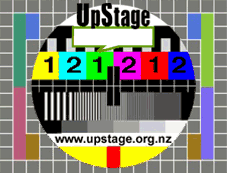
From 2007 to 2012 we held annual festivals in UpStage, and this has been the biggest period of engagement in the project so far. The festivals lasted between 12 hours and one week, and a total of 106 cyberformances were presented over the 6 festivals – most performed more than once in order to be accessible to people in different time zones. The shows were created by over 350 artists from 26 countries, and 54 “nodes” screened sections of performances for locally gathered audiences. A breakdown of these numbers and lists of countries can be found here.
- 106 performances
- more than 350 artists from 26 countries
- 54 real-life access nodes
- more than 5000 audience members
As far as audience numbers go for the festivals, we can count the number of connected computers for each performance, but we know that often there is more than one person at a computer. For example, a node can have a gathered audience of 50 people, but only a single connected computer that is projecting the performance. We always asked the node organisers to send us audience numbers, but the information didn’t always come. And audience feedback told us that there were often multiple people watching from home computers as well – friends or families gathering at one screen to share in the experience together. The total number of connected computers for the festivals was 3649; if we estimate an average of 20 people at each node (we know that some were a lot more than that, but also some were quite small), that’s another 1000+, and add on a couple of hundred for those friends and family members sharing a computer at home – it would be safe to say that audience numbers for the festivals exceeded 5000.
The CyPosium – 2012
As well as the grand finale festival in 2012, UpStage was also part of the CyPosium – a one day online symposium on cyberformance. Over 100 people joined some or all of the 12-hour live event, which was held mostly in the online platform Waterwheel Tap. Miljana Perić gave her presentation, More/Less than a Cyberfession, in UpStage and for this there were 70 connected computers – the largest single audience in UpStage.
make-shift and We have a situation! – 2010-ongoing
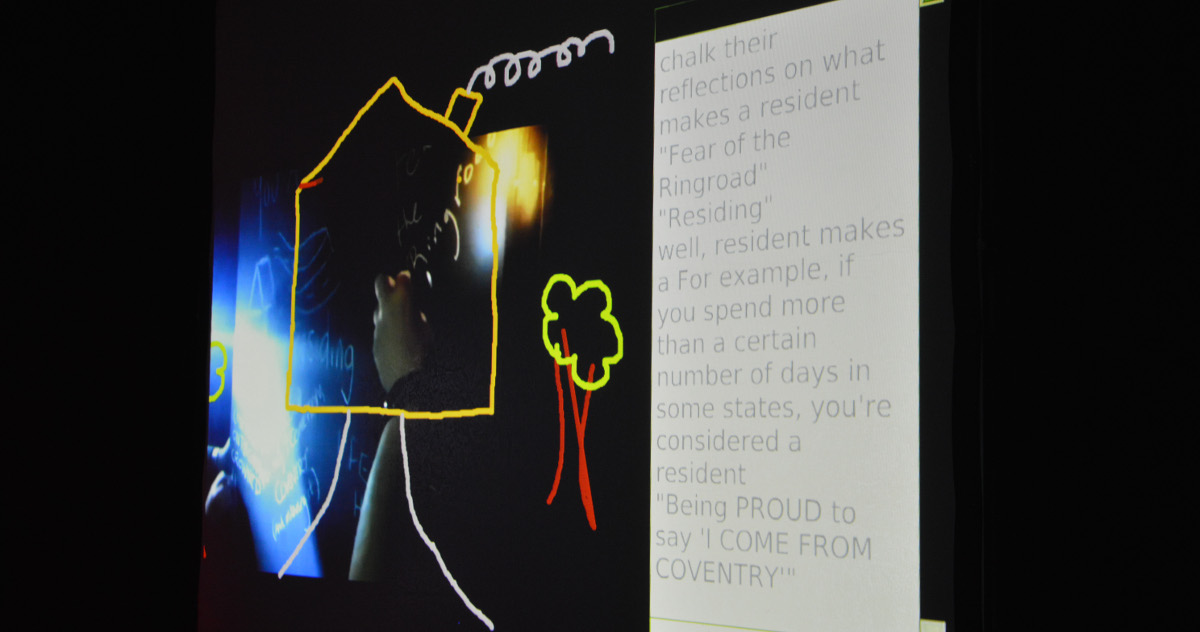
These two projects have brought hundreds more people to UpStage. The networked performance make-shift, by Paula Crutchlow and Helen Varley Jamieson, was performed 20 times as well as six presentation events between 2010 and 2012; an estimated 600 people participated in the performances with a further 500 reached through conference presentations and work-in-progress showings. We have a situation! is an ongoing collaborative project led by Helen Varley Jamieson, with seven events since 2013 involving an estimated 800 people as artists, researchers and audience. Both of these projects continue to introduce more people to UpStage, as they have been discussed in academic journals, books and papaers, and included in exhibitions and collections.
- 27 performances, with audiences online and at events in 12 countries (Austria, Australia, Brasil, France, Germany, India, Italy, Netherlands, New Zealand, Serbia, UK, USA)
- Many presentations, including: Live Performers Meeting, Rome; ISEA 2011, Istanbul; Digital Textuality with/in Performance, Bristol; BIARI, Providence; Herbert Gallery, Coventry.
- ca. 2000 people reached – and We have a situation! continues …
Other performances
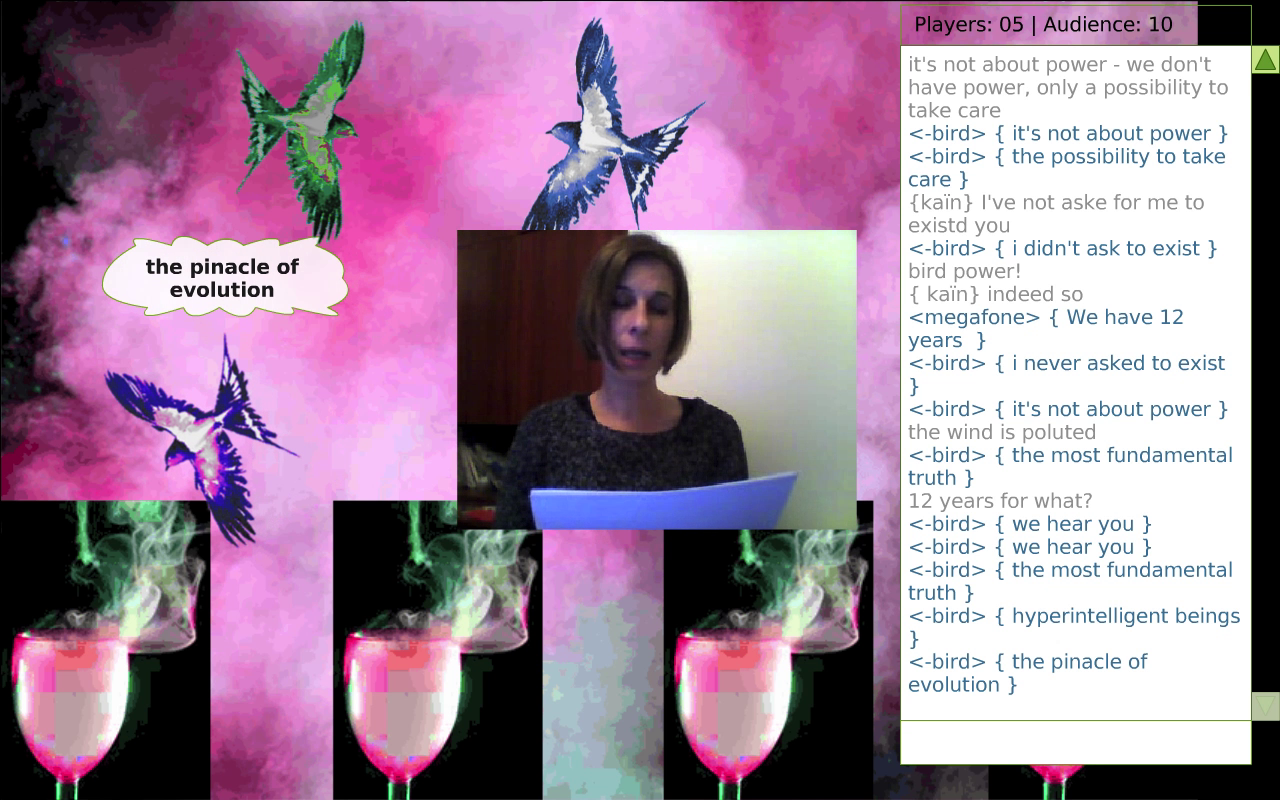
Outside of the festivals and specific projects such as make-shift and We have a situation! there have been many other performances in UpStage.
- Avatar Body Collision, the globally dispersed cyberformance troupe that initiated UpStage, created four performances in UpStage: DTN2, presented online and at Machinista Festival, Glasgow, 2004); Familiar Features, presented online and at Intimacy & Inyerface (Wellington) and the Dunedin Fringe Festival, 2006; Belonging, presented online and at the HTMlles Festival, Montreal, and the Intimacy Seminar, London, 2007; and Come and Go, presented at the 070707 and 121212 UpStage festivals.
- UpStage 10th Birthday: this was celebrated in January 2014 with three new performances: Vita Cyberformativa by Miljana Perić, Balloon by Petyr Veenstra, Floris Sirag and Gabriella Sacco, and a new work by Etheatre Project and collaborators, each presented twice to audiences online and at a shop front space in Wellington.
- The Net and the Butterfly: a performative presentation of documentation, and an allegorical performance, created in 2011 for the TaPRA symposium Documenting Performance: Exploring the Problems and latet presented at PANik 3 – Performance als Dokumentation, Vienna (2011); the script has been published in Performance Arts and Digital Media Volume 10 Issue 1, 2014, which is a special issue on “Interdisciplinary Approaches to Documenting Performance”.
- S/Zports: A Training for the Possible Wor(l)ds: first presented at the 101010 UpStage Festival, this performance was restaged for “Zagrebi Dublje (Scratch Deeper)” at the ULUS Gallery in Belgrade, 2012.
- UpStage @ Electropixel
- Digital Handshake: performed at Networked Bodies – Digital Performance Weekender, London (2014).
- Letters to the Earth: in 2019, six members of the UpStage community joined in a global day of action, performing and reading letters written by people from around the world in response to the climate emergency.
Education sector
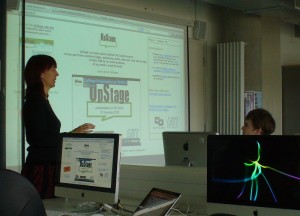
Presentations and workshops at schools and universities have introduced hundreds of students and staff to the potential of cyberformance. Presentations have been made in the classroom and as public events to large audiences. Workshops have usually resulted in short performances that have either been shown at UpStage festivals or internally to audiences of students, staff and friends.
More than 20 presentations and/or workshops have been held at tertiary educational institutions, introducing UpStage to an estimated 1000 staff, students and general public.
- In the UK: University of South Wales, Cardiff; University of the Creative Arts, Farnham; Coventry University; Northumbria University, Newcastle; York St John University, York; Edinburgh University; Exeter University; Manchester Metropolitan University, Manchester; Aberystwyth University; Goldsmiths University, London.
- Aotearoa / New Zealand: Victoria University, Wellington; Waikato University, Hamilton; Whitireia Polytechnic, Porirua;
- Other places: Nanyang Technical University, Singapore; Brown University, Providence; Universite de Montreal.
Vicki Smith incorporated UpStage into her digital professional development work with teachers, and into classroom activities with school children, mainly in New Zealand’s remote West Coast of the South Island.
Conferences, presentations and workshops from 2007 on
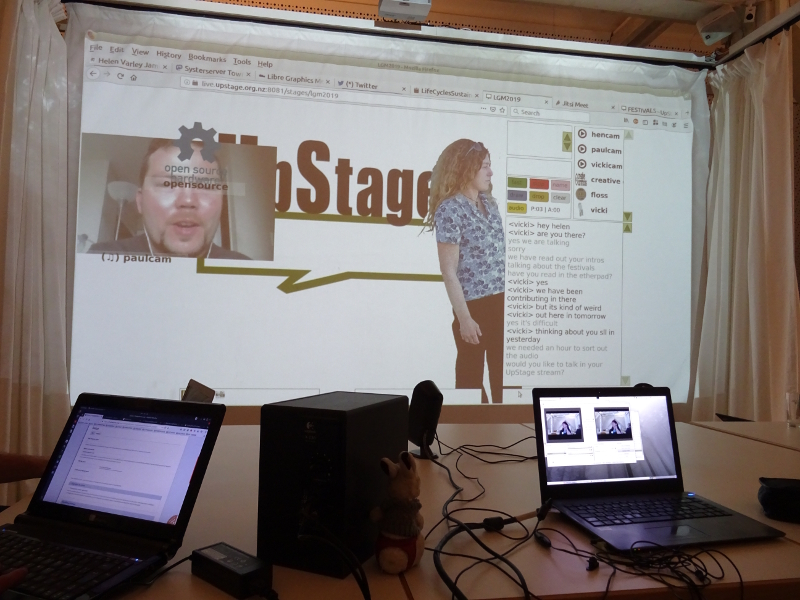
It’s impossible to count all of the presentations we’ve made about UpStage; often a presentation on a broader topic such as cyberformace or political theatre will naturally include UpStage as part of that discussion. Helen has regularly presented the Libre Graphics Meeting, Eclectic Tech Carnival, Magdalena (women’s theatre) festivals, Faces (women in digital arts network) in Europe and there have been many other presentations at conferences and festivals around the world by members of the UpStage community including: Intermediality, Theatricality, Performance, (Re)-presentation and the New Media, Montreal; Digital and Interactive Media in Entertainment and the Arts (DIMEA), Athens; SCANZ Symposium, New Plymouth; Performing Presence: from the live to the simulated, Exeter University, UK; Norsk Telemuseum, Oslo; Upgrade! Munich; Machine Divas, Vienna; LiWoLi, Linz; Electropixel Festival, Nantes; TIP 2013 (online); The Networked Symposium, Munich; Flossie, London; TransHackFeminist, Calafou …

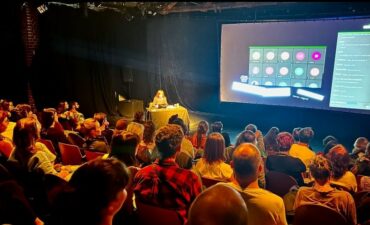
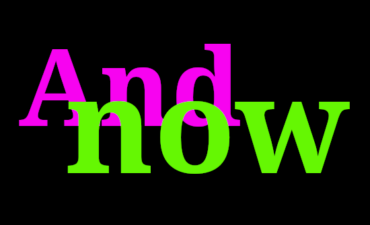
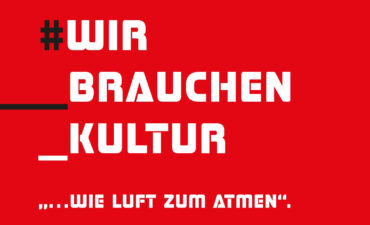
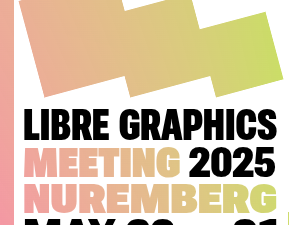
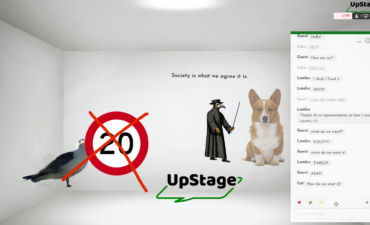
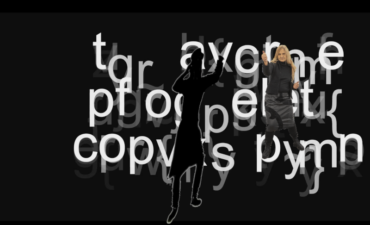
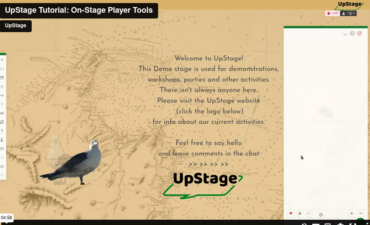
1 COMMENT
Comments are closed.